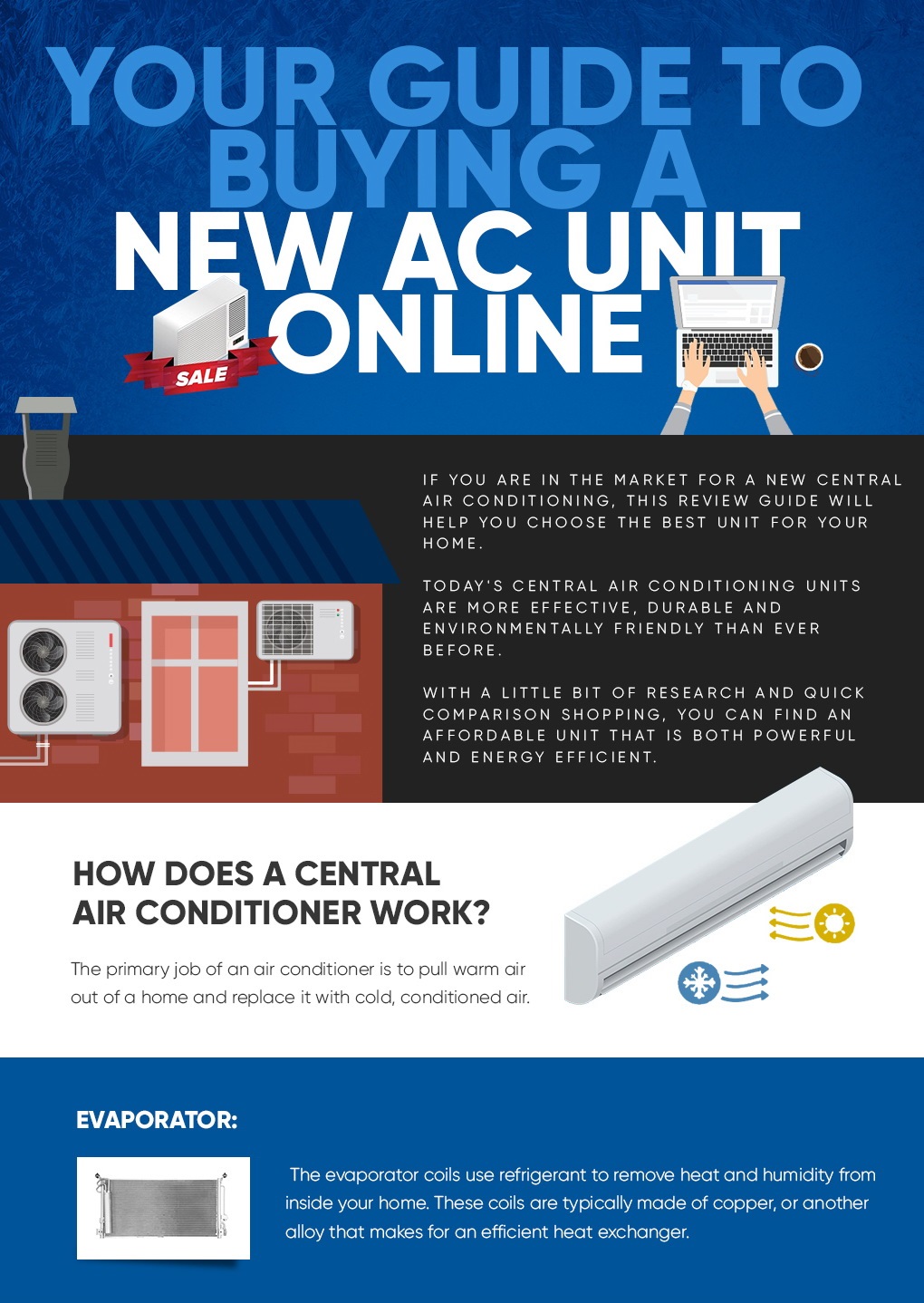The lifespan of an air conditioner is 15 to 20 years, depending on how often it’s used. But chances are you’re going to need to replace your AC unit at one point or another, and when you do you’ll probably have some questions. For example, is buying an air conditioner online safe? Or is it safe to buy a second-hand or refurbished AC unit? We asked a 25-year veteran of the HVAC industry all of the important AC questions so you don’t have to.
We spoke to Erik Bryan, a licensed HVAC contractor and owner of NewACUnit.com, and asked what you need to know about buying an air conditioner online.
- Be wary of ‘too good to be true’ pricing
If a low-priced unit looks too good to be true, it probably is. According to Bryan, most AC units sold online are sold by resellers and are not manufacturer endorsed, which can result in seemingly attractive pricing. “The consumer can purchase a new AC unit at a deep discount, but those generally do not include the product warranty,” explains Bryan. “Then they still need to find an installer and most licensed contractors will not install equipment from third-party sources,” he adds.
Be sure to verify exactly what is included with the air conditioner if the retail price is significantly lower than competitors.
- Double-check the warranty
Read the full warranty before you make your purchase so that you’re aware of how long it will last, whether it’s a seller or manufacturer warranty, what it covers, and whether there are any limitations or conditions on the warranty.
“One of the most common mistakes that consumers make is not checking out the warranty details. You want the product warranty intact on such a large expenditure,” says Bryan.
Warranties for air conditioners range from one to 10 years and can cover everything from complete parts and labor, to the compressor. However, installing the unit improperly can void the warranty, so Bryan suggests securing a licensed contractor for the job.
How to maintain your appliances without voiding the warranty
Click here for full infographic
- Second-hand units might not be worth the savings
“Having a used unit without being able to register a warranty with the manufacturer, gives you absolutely no recourse on repairs or breakdown issues. Just like buying a used car, or a used appliance, you don’t know what you are really getting and there are no guarantees on how long it will last,” warns Bryan.
If you’re considering purchasing a second-hand or refurbished unit, try to avoid buying it ‘as is.’ Check if the seller has a current manufacturer’s warranty that is transferable, and what the terms of that warranty are. If the air conditioner is refurbished, ask the seller for details on what changes have been made to the unit.
- Know what upgrades are required vs. recommended
While shopping for an air conditioner online, be sure to distinguish between required and recommended upgrades.
“Recommended upgrades might include the power system for the unit with things like a disconnect, whip, and plenum box, a new thermostat, or possibly some ductwork modifications. In most cases, if these are recommendations, you can choose to add them on at the time of your installation or defer them until later as your budget permits,” explains Bryan.
Ask your HVAC professional about any add-ons prior to the installation to avoid any costly surprises.
- Replacing broken parts may not be the best solution
Replacing broken components of your old unit may not be the most cost effective solution. According to the Department of Energy, today’s best air conditioners are 30% to 50% more efficient than units built in the 1970s, using significantly less energy to produce the same results.
“A 15-year-old condenser unit may not be compatible with a new air handler or vice versa. They might work, but the efficiency and lifespan of the unit can be greatly compromised,” adds Bryan.
Be sure to test the efficiency of your current unit along with the energy costs required to cool your home, and compare this to the cost of a new unit with installation. If you’ll be spending more money to maintain an old unit long-term, it may be worth installing a newer and more efficient unit.
How long will your home and everything in it last?



Excellent information here. I think that it’s really important to do your research first before just buying what others say. Thanks for sharing!